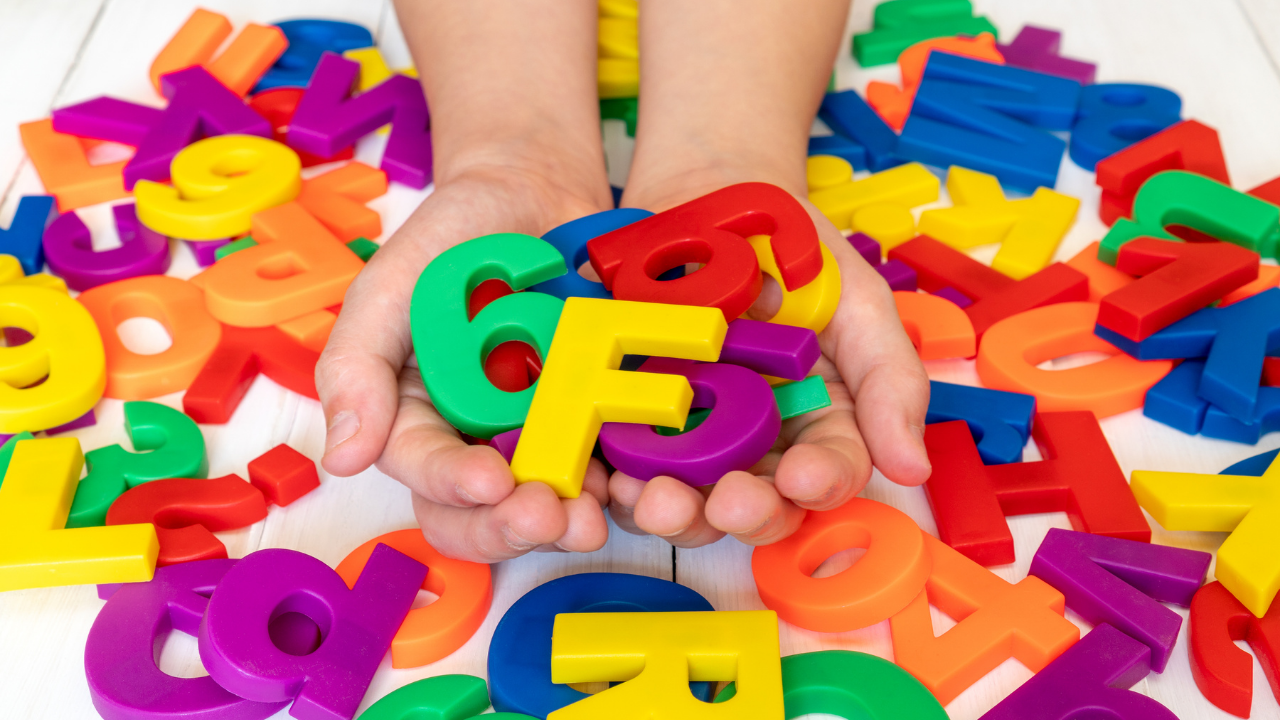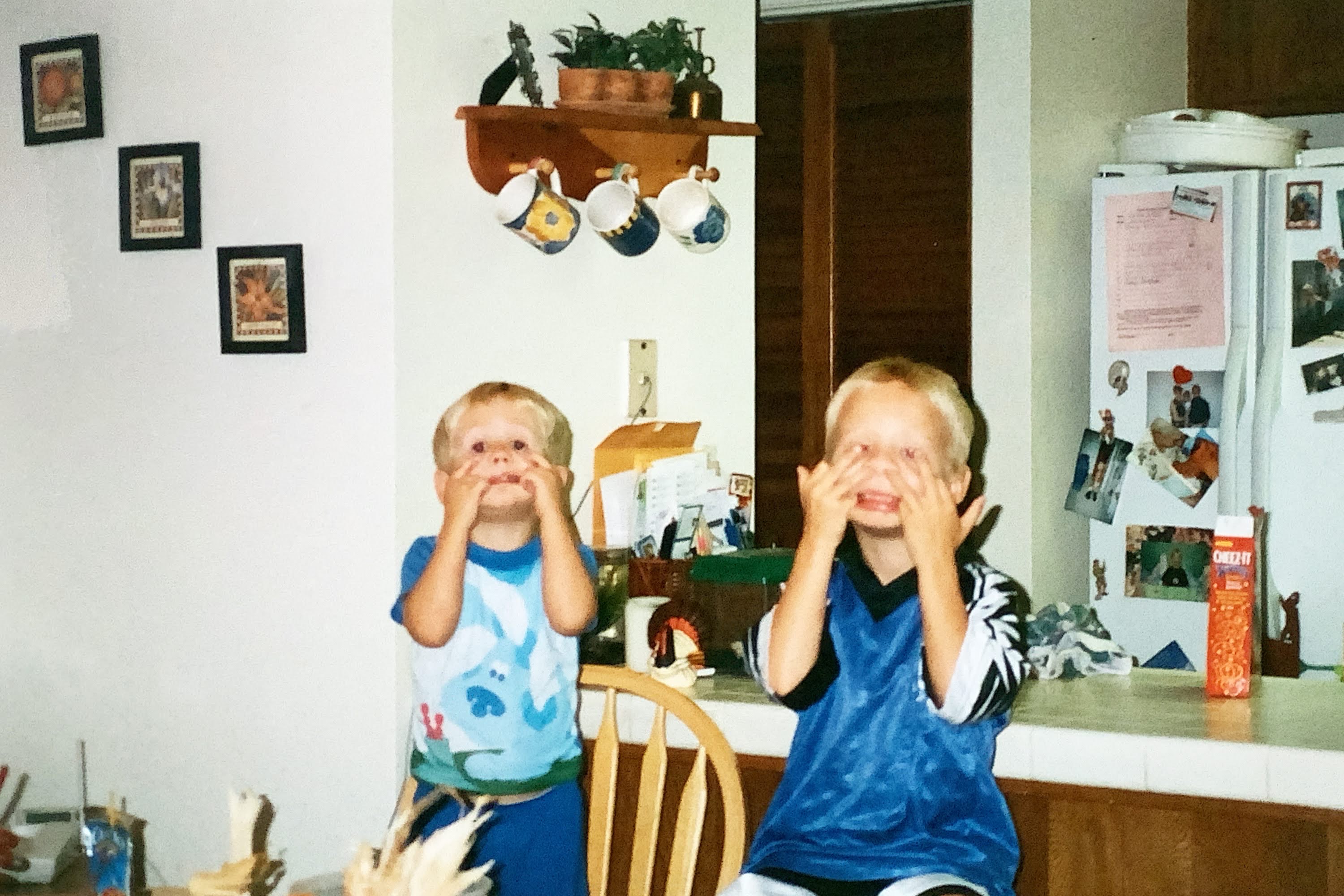Everything You Need to Know about Kindergarten Screening
May 03, 2022
Here we are, approaching the end of a school year and thinking about the next! If you’re a parent of a pre-K student that will head to a traditional school environment, chances are you’re soon going to be attending a kindergarten screening or assessment.
My Personal Experience
My own sons went through this process, and my youngest son had a great physical intelligence, but as of yet cared little for reading/letters/pencil-and-paper activities. I sent him in “as-is,” and the response I got when the teacher brought him out was, “He’s a cutie-patootie!” My response was, “I know exactly what that means!” and laughed. He knew 6 letters and 2 sounds and spelled his name in a way that looked like 4H! He was a boy who adeptly dribbled a basketball at 18 months, proficiently roller-bladed at 2, was an ice hockey goalie by 4, His interests were NOT in the books I religiously read to both my sons every night for at least a half hour; he was (and still is!) a mover and a shaker!
As a first grade teacher, I knew that my youngest would be fine once he was in the proper academic setting. My oldest son was reading Harry Potter by the end of kindergarten; he remains a voracious reader to this day in his adulthood. He was “ready” according to all the guidelines. I tell you this in hopes that you won’t fear for your child nor compare your child to a sibling or a friend’s child. We all learn to walk at different times, yet we all walk fine by the time we’re in school. The same is true for lots of academic milestones. They’re a generalization that will be met at different times depending on brain, motor, and eye development. Don’t worry if your child isn’t at an “A+” level before they’ve even had a seat on that colorful kindergarten rug!
What Do Most Kindergarten Teachers Hope to See?
A nice kid!
When I ask my kindergarten cohorts what they hope for when a child comes to screening, the first words seem to be “a NICE kid!” When you’re looking at teaching a child, if they’re defiant, lack reasonable impulse control, or simply don’t listen well on a consistent daily basis, the job gets harder for both the teacher AND the child. We all have bad days—teachers don’t want Stepford children, but a child who has been taught to listen to adults that are trusted is definitely going to learn at a faster rate than one who is challenging every step of the learning process.
If your child is shy or scared, that’s normal! This is a new experience. Effective teachers are used to that and accommodate that.
A child who can handle a book
One part of screening often consists of handing a child a book and asking him/her questions such as these:
- Point to the title.
- Open the book and show me where we start reading.
- What direction do we go when reading words in a book? (This will usually mean sliding your finger from left to right.)
- How do we turn pages in a book?
- Do you see any words you know in this book?
- Look at the pictures. What might this book be about?
Some screenings aren’t as detailed as this, but these are all good literary habits to begin with your child by the age of 4 as a routine when you start to read a bedtime story, for example.
One pet peeve of teachers of K/1 is how children turn the pages of a book. With the advent of iPads and touch screen phones in the hands of children, I found more students after 2010 were “swiping” the pages of my books rather than picking each page up by the corner and turning it gently. I don’t think I’ve ever taped as many book pages as I have in the last decade! Please work with your child on turning pages in a book; you’ll make the teacher happy!
Knowledge of numbers and letters
If your child knows the numbers 0-10, that’s great! If they can write them, even better! If they don’t know how to write them in a skilled manner yet, do not worry. That’s something kindergarten is for! Being able to count objects (one-to-one correspondence) is also a good entry skill.
If your child knows the alphabet, that’s definitely desired. (But remember my son, whose mom taught first grade, did NOT know his alphabet despite getting academic input at home on a daily basis!) Some children aren’t ready (or interested!) yet, so they will get there in the classroom. Just be sure to reinforce what is being taught so your child gets the needed boosts along the way.
The basic letter sounds are also a desired screening trait. If that’s something you can work on, whether through literature or learning games, it’s welcomed. But once again, developmentally, that will come if your child isn’t quite ready prior to kindergarten.
My dear friend who teaches kinder tells a great story of a child at screening once:
Her (pointing to the letter R): “Do you know what sound this makes?”
Child: “Moo!”
Her (pointing to another letter):”What about this letter?”
Child: “Grrrrr!”
There was nothing “wrong” with that child; he was just getting ready to learn what those letters really stood for in her class! It was great for a laugh, though!
Ability to speak and be understood
Kindergarten teachers need to understand your child when he/she is speaking. This can be developmental as well, but the more adults have conversations with their children, the more vocabulary those children will have. There are numerous studies about the importance of talking with your child. You can read two informative articles here and here.
If speech therapy is needed, that’s an intervention that will happen. Just like other milestones, some children need more time than others, and that’s okay as well.
One teacher told me she has found that some children don’t know to look at her when she talks because the adults with the children often are looking at phones or screens rather than the child when they talk. In the age of technology at our fingertips, I get sad when I see a parent who doesn’t put down the screens and spend time with children “the old-fashioned way.”
At the grocery store, it frustrates me to see a young child in the cart on the phone rather than talking about the food they see, the colors, the numbers, counting the tomatoes in the cart, etc. I’m sure you’ve seen that as well. If you’re like me, you feel the more talking there is between you and your child, the better! (We all know there ARE those times we wish our kids were a bit less verbal, though!)
Ability to listen to directions
Kindergarten teachers are grateful for students who listen to directions! I don’t think more needs to be said here. It may not necessarily be on a screening list, but the better a child will listen and follow directions, the success of said child increases exponentially.
Ability to deal with bathroom skills
Barring any medical/physical issue preventing this, a child should be able to take care of toilet skills on his/her own when entering kindergarten. Of course, there are still issues. Even in first grade, I’d have to help with belts and snaps from time to time, and accidents still happen through first grade! That being said, being able to “take care of business” alone gives the child a lower anxiety level and increases teaching time.
I had a sweet gal who wouldn’t use the bathroom if there was a spider in it. (We were a spider-filled school!) She’d pop right back in the room and let me know she couldn’t use the bathroom. Rather than dying on that hill, I had a deal with the health clerk to let her run to the office on those “spider” days. Most teachers will accommodate children being … CHILDREN. ;)
You can Google all sorts of lists that show what might be screened going into kindergarten, and you can also probably get a list from the school your child will be attending. There are more items than mentioned in this article! These are just the things that the teachers I know say are the things they like to see the most.
Overall, they tell me that screening is really just to get to know your child and his/her abilities so they know how to group students appropriately upon entering school, and where to start teaching them. Think of it as a physical at the doctor’s office. The doctor wants to check where you are physically to establish a baseline and care plan, then with every other visit, they know where you started and what recommendations to give you to keep you healthy.
The teacher just needs that baseline to know how to best help your child grow academically and also feel comfortable in the new classroom setting in the fall!
Above all, don’t worry if your child isn’t up to par in ANY of these areas; it all comes together! Please don’t “force-teach” for the screening. Learning is a natural occurrence in the right environment, and while your child’s teacher will need you on the learning team, the teacher knows how to get from the starting point to where the child needs to be and will gently do so.
My youngest son LOVED his kindergarten teacher Mrs. Belzman, (as do I!) and she got him to love reading, writing, and learning. His relationship with her was the key. In the process, I never worried about him academically. If I worried, HE would have worried. When we are under stress, our brains aren’t as efficient. (See my blog post about stress here.) Just support the teaching at home, and enjoy the process! I’m sure you’ve heard it before, but once you walk your child into that kindergarten classroom, you’re going to blink your eyes and they’ll be driving. In spite of everything we do or don’t do, they DO grow up, so enjoy more and stress less about what they still need to learn!
Stay connected with news and updates!
Join our mailing list to receive the latest news and updates from our team.


